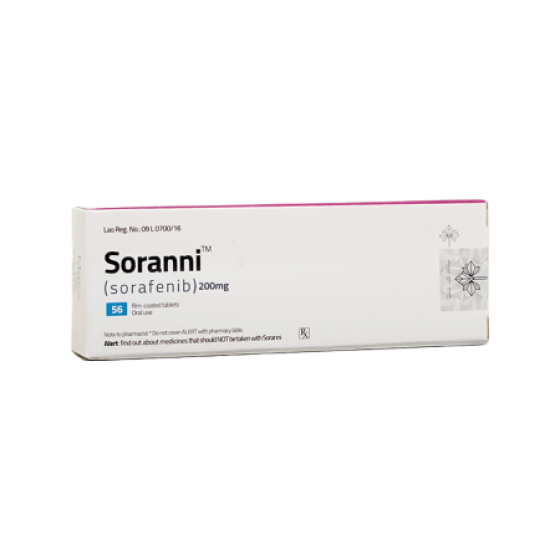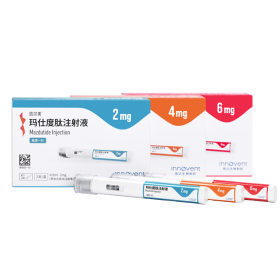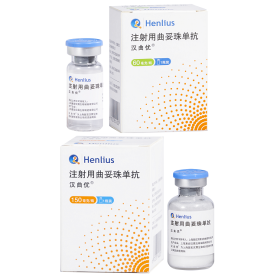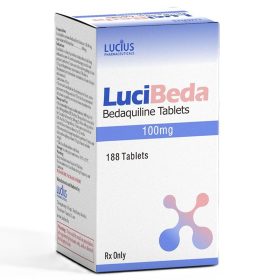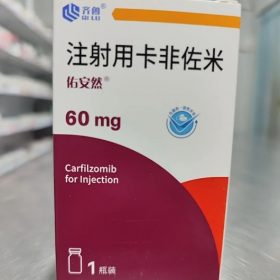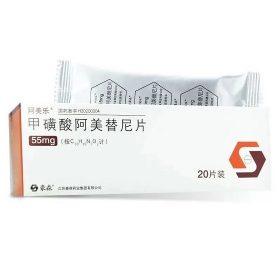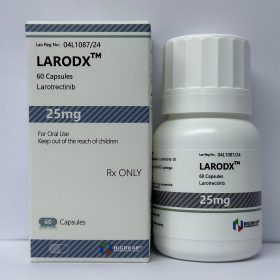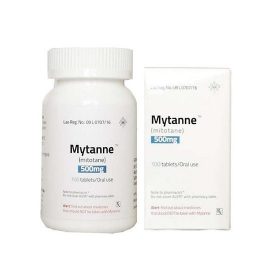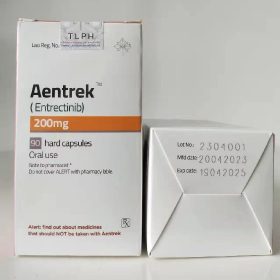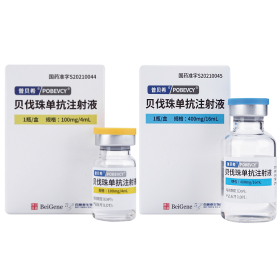- Details
- Description
-
Packaging Size200mg*56Tablets/Box
-
Strength200mg
-
CompositonSorafenib
-
Treatmentkidney cancer (advanced renal cell carcinoma),liver cancer (hepatocellular carcinoma)
-
FormTablet
-
BrandSoranni
-
Quantity Unit56Tablets/Box
-
ManufacturerTongmeng (Lao) Pharmaceutical & Food Co., Ltd.(TLPH)
Indications
Including: unresectable hepatocellular carcinoma, advanced renal cell carcinoma, and local recovery that is refractory to radioactive iodine therapy
Hair or metastasis, and advanced differentiated thyroid cancer.
Dose and administration method
- Method of administration
- 400mg (2 tablets) orally, twice a day, on an empty stomach.
- To deal with suspected adverse drug reactions, treatment may need to be interrupted and/or dose reduced. The dose can be reduced To 400mg once a day or to 400mg, once every other day.
- Dosage specifications
- Tablets, 200mg.
- Contraindications
- People who are known to be allergic to sorafenib or any other components of the drug should not use sorafenib.
- In patients with squamous cell lung cancer, sorafenib is contraindicated in combination with carboplatin and paclitaxel.
Warnings and Precautions
- Myocardial ischemia and/or infarction: consider temporarily or permanently discontinuing sorafenib.
- Bleeding: If bleeding requires medical intervention, consider discontinuing sorafenib.
- Hypertension: 6 weeks before treatment, regularly monitor blood pressure every week. Follow-up treatment should also be monitored regularly.
- Skin toxicity: Interrupt and/or reduce the dose. Severe or persistent skin toxicity, or pregnant Stop taking the medication when you suspect Stevens-John syndrome and toxic epidermal necrolysis.
- Gastrointestinal perforation: stop taking sorafenib.
- Prolonged QT interval: Patients with high risk of ventricular arrhythmia regularly monitor ECG and electrolyte levels.
- Drug-induced hepatotoxicity: monitor liver function regularly; stop if there is an unexplained rise in transaminase Stop taking medicine.
- Embryo toxicity: It is recommended that women of childbearing age avoid pregnancy when taking the drug.
- Thyroid-stimulating hormone (TSH) damage in differentiated thyroid cancer (DTC): monitor TSH once a month,
(Please read this notice carefully and take the medicine according to this notice or under the guidance of a doctor)
- Thyroid replacement therapy is suitable for patients with thyroid cancer.
Adverse reactions
The most common adverse reactions related to sorafenib (≥20%): diarrhea, fatigue, infection, baldness, Hand and foot skin reactions, rash, weight loss, anorexia, nausea, gastrointestinal pain and abdominal pain, high blood pressure and blood.
storage method
Shading, cool and dry place

